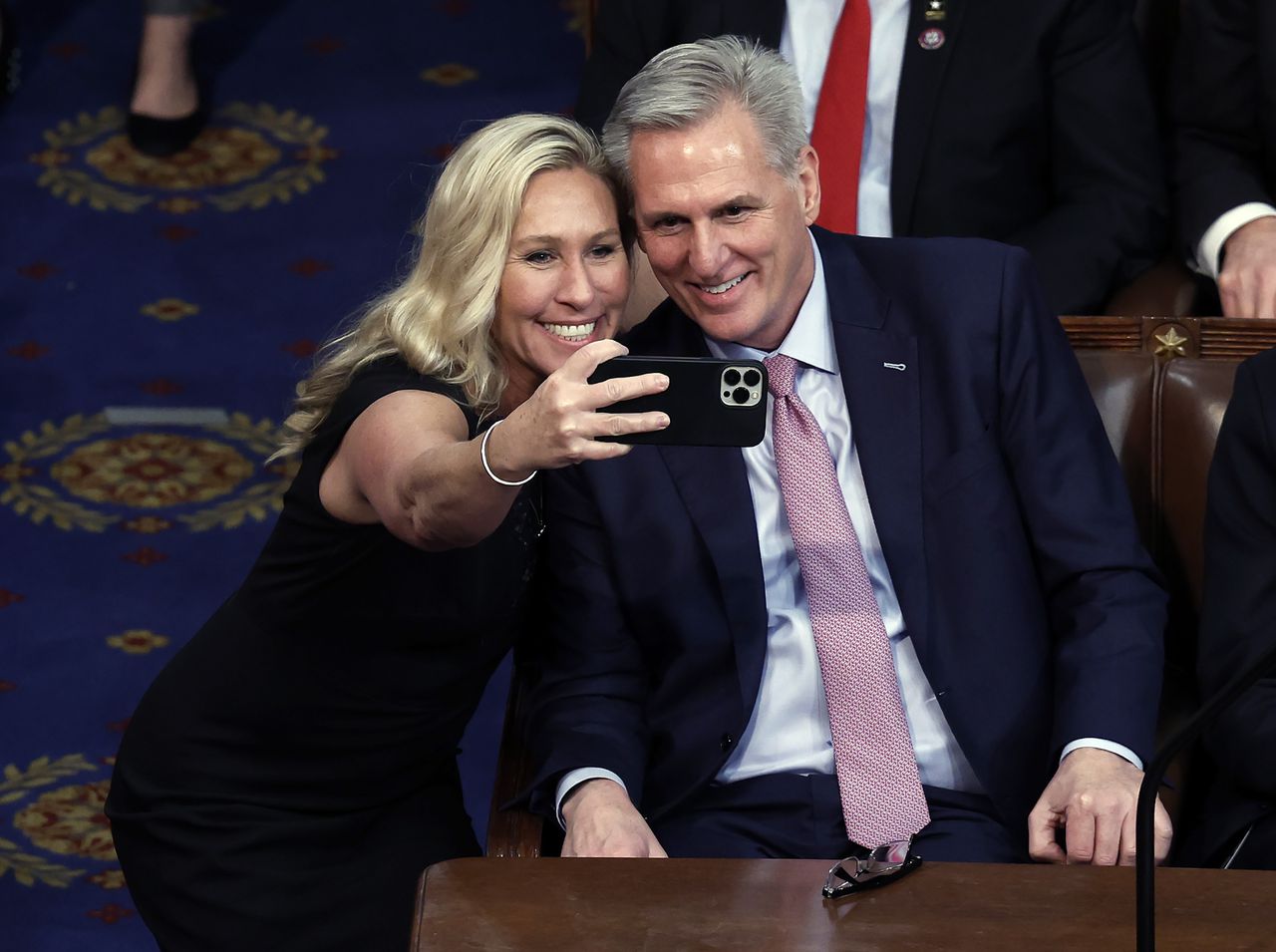In surprise move, Marjorie Taylor Greene pulls spending bill support as shutdown looms
U.S. Rep. Marjorie Taylor Greene withdrew her support for a defense appropriations bill Thursday and helped stall efforts by her supposed friend and ally, House Speaker Kevin McCarthy, to pass federal spending legislation.
Greene had voted in favor of the very same measure on Tuesday. The Georgia Republican didn’t stick around to talk to the news media after a procedural vote on the defense funding bill but released a statement on social media saying she flipped because she now wants the measure stripped of any funding for Ukraine.
“Our nation is being invaded at our southern border,” she wrote. “I’m not voting for the rule or the bill because it funds the war in Ukraine, while we’re not defending our own country.”
U.S. Rep. Dan Crenshaw, a Texas Republican and former Navy SEAL, said Greene’s reversal took lawmakers by surprise. Her position, he said, represents a misunderstanding of U.S. involvement in Ukraine.
“It’s not about Ukraine. It’s about defending a world where countries don’t invade one another and screw up our American way of life as a result,” he said.
McCarthy, R-Calif., adjourned the House for the week following the failure to advance the defense appropriations bill. The stalemate casts further doubt on the GOP’s ability to pass a plan to fund the government beyond a Sept. 30 shutdown deadline. Republicans have yet to open negotiations with Democrats but haven’t found a plan that can pass with GOP votes alone.
McCarthy’s latest strategy is to pass the 12 appropriations bills one by one. But with the typically well-supported Pentagon spending legislation failing twice this week, that blueprint seems doomed.
The House Rules Committee is meeting today and could make four more spending bills eligible for floor votes. The rest of the House was sent home for the weekend, although lawmakers were told they could be called back at any time for votes.
Even if these bills manage to win majority support in the House, they represent steep cuts in spending and conservative policies that are unlikely to win support in the Democratic-led Senate.
Senate Leader Chuck Schumer, D-N.Y., on Thursday took the first steps toward introducing a continuing resolution to temporarily fund the federal government while long-term spending plans are ironed out.
